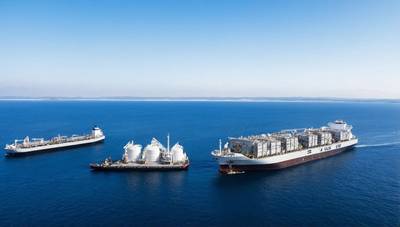The Growing Demand for LNG Cargoes
Competition for liquefied natural gas (LNG) is expected to intensify this year, as Europe continues to depend on this vital resource following significant shifts in gas supply chains. With Russian gas supplies through Ukraine at a standstill, European nations are in a race to secure LNG cargoes, while Asian buyers are looking to fulfill their cooling needs as temperatures rise. This rapid demand highlights a critical intersection of energy needs and logistics, setting the stage for intensified market dynamics.
The Importance of LNG in Today’s Energy Landscape
Considered a transitional fuel, LNG plays a vital role in the shift towards zero emissions. As countries prioritize sustainability and energy security, the reliance on LNG positions it as a pivotal energy source. This demand surge can also lead to fluctuations in prices as increased regional competition unfolds, particularly as Europe strives to replenish its depleted gas reserves. When competing for LNG cargoes, understanding logistics becomes paramount.
Current Trends in LNG Prices
With the current landscape of energy supply, there’s a lighting up of prices this year owing to increased regional competition. Following the cessation of Russian gas supplies, Europe faces a pressing need to stabilize its energy needs while Asia continues to see growing imports. As countries adapt their energy strategies, price projections are expected to escalate, underscoring the need for effective logistics solutions.
Key Players in the LNG Market
The International Gas Union (IGU) stands at the forefront of the global gas sector, representing a vast network of over 130 members from more than 70 countries. This association offers essential insights into how the global LNG market is evolving and the myriad factors influencing supply and demand.
Insights from IGU President Li Yalan
In a recent report, IGU President Li Yalan remarked on the fragility of the global LNG market equilibrium, highlighting uncertainty on both the demand and supply fronts. Fluctuations in geopolitical landscapes and trade regulations have caused ripples in the market, thereby elevating the stakes for stakeholders involved in LNG distribution.
Market Projections for LNG Trade
According to forecasts, the global LNG trade is anticipated to surge by 2.4%—equating to 9.8 million tons—reaching an impressive 411.2 million tons by 2024. This growth is driven by increased liquefaction capabilities and a boost in exports from key producers like the United States, Russia, and Australia. Detailed projections indicate that:
| Region | Projected Growth (Million Tons) |
|---|---|
| Asia | 12.5 |
| Europe | -21.2 (decrease) |
| U.S. Exports | 3.9 |
| Australia | 81.25 |
| Qatar | 77.2 |
Asia’s Escalating LNG Imports
Asia emerges as a significant player in the LNG import space, with notable increases driven by countries like China and India. This year, China remains at the helm as the world’s largest LNG importer, bringing in 78.6 million tons—an increase of 7.5 million tons from 2023. As Asia confronts heatwaves and bolstered reliance on gas-fired electricity, these shifts reveal the indispensable role of LNG in the energy mix, shaping logistics challenges and solutions across regions.
The Situation in Europe
Conversely, Europe is witnessing a distinct decline in LNG imports, dropping to the lowest levels since 2021, recording an impressive decrease of 21.2 million tons to 1000.1 million tons. This decline is attributed to high initial gas storage levels, sluggish demand, stable pipeline flows, and increasing output from renewable energy sources.
Logistical Challenges Ahead
The competition for LNG poses intricate logistics challenges as companies seek reliable and cost-effective solutions for cargo transportation. Issues related to storage, transportation, and distribution highlight the need for streamlined logistics processes. Having a partner like GetTransport.com can help ensure operational efficiency, offering affordable shipping options globally at competitive prices for moving, delivering cargo, or handling bulky goods.
Future Impacts on Global Logistics
As both Europe and Asia navigate the evolving landscape, the implications for global logistics are profound. Rising LNG demand will necessitate enhanced logistics capabilities, ensuring timely and efficient delivery of goods to meet market needs. Moreover, companies must remain adaptable to market fluctuations, with a focus on strategic planning and implementation in logistics management.
Conclusion and Summary
The heightened competition between Europe and Asia for LNG cargoes underscores a shifting landscape in the energy market, intertwined with logistics dynamics. Whether facing an upswing or a decline, effective logistics strategies are crucial for harnessing opportunities arising from increased demand. As companies strategize to stay competitive in this evolving environment, partnering with a versatile logistics solution like GetTransport.com allows for seamless and economical transportation of cargo, essential for catering to diverse market needs. Make the savvy choice for your logistics and shipment needs, benefiting from transparency, affordability, and convenience provided by GetTransport.com to streamline your next delivery. Book your Ride.

